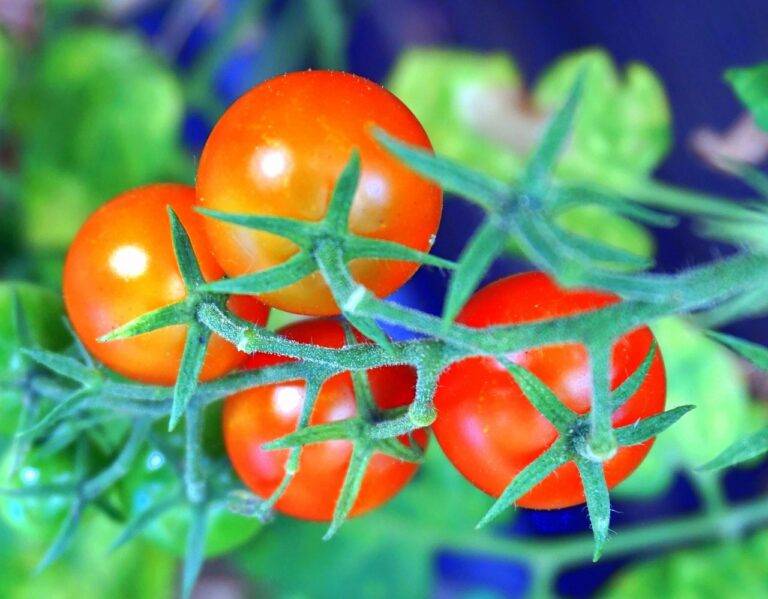Fermentation and Food Justice: Ensuring Access to Nutritious Foods for All Communities
world7 id, mahadev betting login, silver 777 login: Fermentation and Food Justice: Ensuring Access to Nutritious Foods for All Communities
Food justice is a critical issue that affects communities all over the world. Many people struggle to access nutritious foods due to various barriers such as income, location, and lack of knowledge about healthy eating. Fermentation is a traditional food preservation technique that can play a crucial role in addressing these challenges and ensuring that everyone has access to the nutritious foods they need to thrive.
In this blog post, we will explore the intersection of fermentation and food justice, discussing how fermentation can help increase access to healthy foods, reduce food waste, and empower communities to take control of their food systems. We will also provide practical tips for incorporating fermented foods into your diet and highlight some of the ways that individuals and organizations are working to promote food justice through fermentation.
The Power of Fermentation
Fermentation is a natural process in which microorganisms such as bacteria, yeast, and molds break down carbohydrates in foods to produce beneficial compounds like lactic acid, alcohol, and vitamins. This process not only preserves food but also enhances its nutritional value and flavor. Fermented foods are packed with probiotics, which are beneficial bacteria that support gut health and overall well-being. Additionally, fermented foods are often easier to digest than their non-fermented counterparts, making them an excellent option for individuals with digestive issues or food sensitivities.
One of the most well-known examples of fermented foods is yogurt, which is made by fermenting milk with lactic acid bacteria. Other popular fermented foods include kimchi, sauerkraut, kombucha, and miso. These foods have been consumed for centuries in cultures around the world and are now gaining popularity in the mainstream health and wellness community.
Fermentation and Food Justice
So, how does fermentation relate to food justice? The answer lies in the many benefits that fermented foods offer, particularly for communities facing food insecurity. Fermented foods have a long shelf life, allowing them to be stored and preserved without the need for refrigeration or other costly preservation methods. This makes fermented foods an excellent option for communities with limited access to fresh produce or grocery stores.
Additionally, fermenting foods can help reduce food waste by extending the life of perishable items such as vegetables, fruits, and dairy products. This is especially important in a world where nearly one-third of all food produced is wasted each year. By fermenting surplus or leftover foods, individuals and organizations can prevent valuable resources from being thrown away and instead create nutritious, flavorful products that can be enjoyed for weeks or even months.
Empowering Communities Through Fermentation
In addition to increasing access to healthy foods and reducing waste, fermentation can also empower communities to take control of their food systems and improve their overall health and well-being. By teaching people how to ferment foods at home, organizations can help individuals develop valuable skills in food preservation, cooking, and nutrition. This can lead to greater self-sufficiency, economic empowerment, and a stronger connection to food and culture.
Furthermore, fermenting foods can be a way to reclaim traditional foodways and celebrate cultural heritage. Many fermented foods have deep roots in specific cultures and have been passed down through generations as a way to preserve seasonal harvests and enhance the taste of meals. By preserving and sharing these traditions, communities can foster a sense of pride and identity around their culinary heritage and strengthen connections with their ancestors and the land.
Practical Tips for Incorporating Fermented Foods
Now that we’ve discussed the benefits of fermentation for food justice, let’s talk about how you can incorporate more fermented foods into your diet. Here are some practical tips to help you get started:
1. Start small: If you’re new to fermented foods, begin by trying small amounts of different types to see what you enjoy. You can find fermented foods at your local grocery store, farmers market, or specialty food store.
2. Experiment in the kitchen: Get creative with your cooking and try making your own fermented foods at home. You can ferment vegetables, fruits, dairy products, grains, and more using simple recipes and techniques.
3. Include fermented foods in your meals: Add a spoonful of sauerkraut to your salad, enjoy a cup of kombucha with your lunch, or snack on some kimchi with your afternoon tea. The possibilities are endless!
4. Listen to your body: Pay attention to how fermented foods make you feel and adjust your consumption based on your individual needs and preferences. Some people may experience digestive benefits from probiotic-rich foods, while others may need to limit their intake due to certain health conditions.
5. Connect with others: Join a fermentation workshop, cooking class, or community food project to learn from others and share your experiences. Building a community around fermented foods can help you stay motivated and inspired to explore new flavors and techniques.
Promoting Food Justice Through Fermentation
There are countless ways that individuals and organizations can promote food justice through fermentation. Here are just a few examples of how people are working to increase access to healthy foods, reduce food waste, and empower communities through fermentation:
1. Community gardens: Many community gardens incorporate fermentation into their programming by hosting workshops, demonstrations, and events focused on preserving seasonal harvests and sharing traditional food preservation techniques.
2. Food rescue organizations: Nonprofit organizations like Food Rescue US and City Harvest work to rescue surplus food from farms, restaurants, and grocery stores and redistribute it to people in need. By fermenting excess produce, these organizations can extend the life of perishable items and provide nutritious foods to communities facing food insecurity.
3. School programs: Schools and educational institutions are incorporating fermentation into their curricula to teach students about food preservation, nutrition, and sustainability. By engaging young people in hands-on learning experiences with fermented foods, educators can inspire the next generation to make healthy food choices and advocate for food justice in their communities.
4. Food justice coalitions: Coalitions like the Food Chain Workers Alliance and the National Farm to School Network bring together diverse stakeholders to advocate for policies and practices that support food justice. By promoting fermentation as a sustainable food preservation strategy, these organizations are working to create a more equitable and resilient food system for all.
Frequently Asked Questions
Q: Can fermented foods help improve digestion and gut health?
A: Yes, fermented foods are rich in probiotics, which are beneficial bacteria that support digestive health and overall well-being. Regularly consuming fermented foods like yogurt, kefir, sauerkraut, and kimchi can help maintain a healthy gut microbiome and improve digestion.
Q: Are fermented foods safe to eat?
A: When prepared and stored properly, fermented foods are safe to eat and can be enjoyed as part of a balanced diet. It’s essential to follow hygienic practices, use quality ingredients, and monitor the fermentation process to ensure the safety and quality of the final product.
Q: Can I ferment foods at home without any special equipment?
A: Yes, you can ferment foods at home using simple equipment like mason jars, fermentation weights, and airlocks. Many fermented foods can be made with basic kitchen tools and ingredients, making it easy and affordable to get started with fermentation in your own kitchen.
Q: How can I learn more about fermentation and food justice?
A: To learn more about fermentation and food justice, consider attending workshops, events, and classes offered by local organizations, farms, and community centers. You can also explore online resources, books, and documentaries to deepen your understanding of these topics and connect with like-minded individuals who share your passion for healthy, sustainable food.
In conclusion, fermentation is a powerful tool for promoting food justice and ensuring access to nutritious foods for all communities. By harnessing the benefits of fermentation, individuals and organizations can increase food security, reduce food waste, and empower people to take control of their food systems. Whether you’re new to fermented foods or a seasoned fermenting pro, there are endless opportunities to explore the world of fermentation and make a positive impact on the health and well-being of yourself and your community. Let’s toast to a future where everyone has access to the delicious, nutritious foods they need to thrive!







